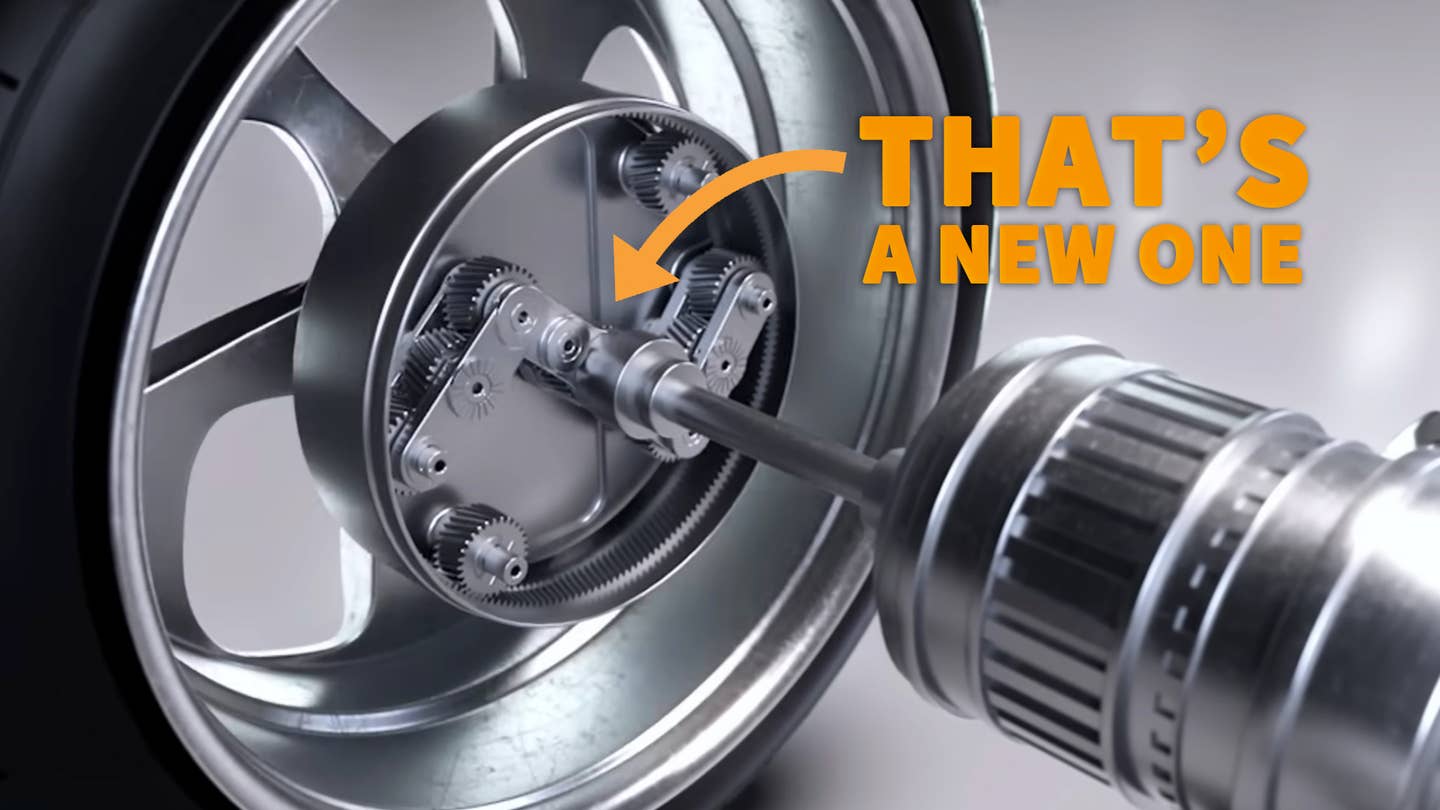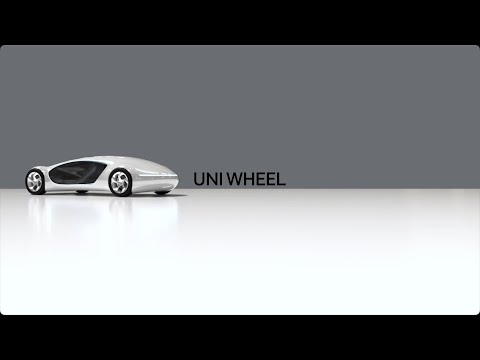Hyundai’s Uni Wheel Idea Is a Radical Take on a Basic Car Part
Hyundai’s reinventing the CV joint to unlock additional interior and battery storage space between the wheels.

We're not talking about some kind of mass-market unicycle here—I feel like we have to get that out of the way first. But Hyundai's Uni Wheel concept is pretty neat. It represents a unique approach to a fundamental component that's in both gasoline and electric cars.
Let's crash through context quickly: Most modern cars, no matter how they're propelled, put power to their wheels through axles and CV joints. Those letters stand for "constant velocity," but what matters is that they allow the drive wheel to work while getting shoved around by bumps and turns on the road surface.
You've got to get power from a fixed point (motor/engine/transmission) to something that's constantly changing position (wheel). If you don't want to use a straight axle, which were common in old vehicles and trucks but quite heavy, you need something that's both spinny and bendy so a drive wheel can get consistent power even as it travels over imperfections in the road.
Hyundai is presenting its Universal Wheel Drive System, or Uni Wheel, as a replacement to the axle and CV joint system. Instead of a joint that can keep spinning while bending, Uni Wheel puts a dynamic gear set right at the wheel hub. This, in the most basic sense, has the wheel moving around the axle instead of the axle moving with the wheel.
This video explains the whole thing nicely:

Now that you know what's going on here, you probably have the same question I did: Why?
The main pitch in Hyundai's press release is that the Uni Wheel approach would free up space within the vehicle's floorplan to allow for more flexibility in interior layouts or places to put batteries.
That's cool and fine I suppose, and you've got to hand it to Hyundai for being willing to challenge mechanical conventions. That said, I am pretty skeptical of this becoming commonplace on cars any time soon. Maybe ever.
The main issue that jumps out at me is weight. The Uni Wheel looks like it'd come with a major unsprung weight penalty. Any weight a vehicle carries that's not held up by its suspension (wheels, brakes, and axles) burdens the car significantly. That's why lightweight wheels are a big boon for performance, and why plopping a huge basket of gears at the hub could hurt efficiency, braking, acceleration, and handling.
Then there's the simple issue of introducing new failure points. CV joints don't need to be replaced often at all if your car's stock, because they work well as designed. Do I really want a whole solar system of gears, taking severe constant abuse, at each corner of my vehicle? And what would be the effect of sloshing gear oil (it'd need to be lubed somehow right?) at the hub of the car? As for dealing with camber settings, the in/outward tilt of a vehicle, it looks like that's managed by the same movable/bendable articulator as a CV joint.
Another word that was oddly absent from Hyundai's release was "brake." Where the heck would the brakes go with this setup?
Hyundai contends that Uni Wheel could be more efficient and durable than a traditional axle, but, it feels counterintuitive to me. More gears to spin seems like a greater source of parasitic loss than a CV joint, though of course I guess it would depend on materials, and ditching the weight of the axle itself would buy some headroom.
I remain wary of this as an automotive solution that will become pervasive, but I still love to see new concepts being tested against established technology. I did drop Hyundai's contact a note with my questions, along with one about the automaker's timeline to get this technology into drivable cars, and will update this story if we get any fresh insights. For what it's worth, Hyundai does say in its video that "the first ever Uni Wheel test vehicle has passed a rigorous performance requirement test." Meanwhile—you're welcome for sharing this fresh engineering idea to ponder while you procrastinate at work, and thanks to Hyundai for serving it up.
Got a tip? Send it in: tips@thedrive.com
